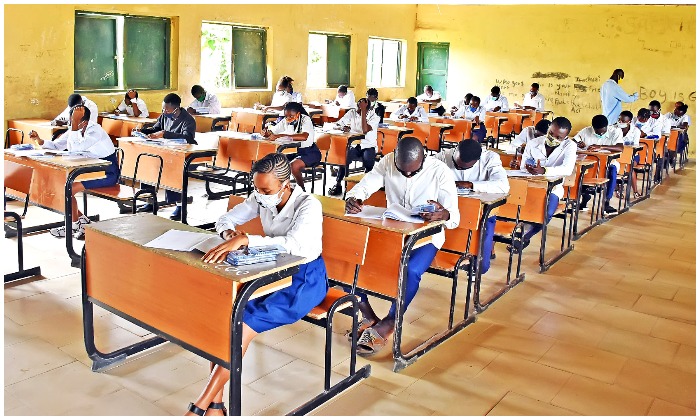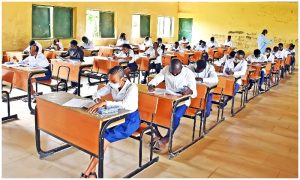
EXAM MALPRACTICE: DON WANTS SMARTPHONES BANNED IN SCHOOLS, VARSITIES

In a bid to curtail the increasing rate of examination malpractice and impact of social media on academic performance government at various levels have been charged to ban use of smartphones in schools in Nigeria.
This was disclosed by the Acting Deen, Faculty of Agriculture, Al-Hikmah University, Dr. Olorunnisola Saeed, while speaking at a symposium tagged “Effects of Examination Malpractices on Education and National Development”, organised by the Mission For The Eradication of Examination Malpractice, MEEM, under the Muslim Students’ Society of Nigeria (MSSN) B zone, held in Osogbo, Osun State, on Saturday.
He opined that the current use of smartphones among students has become a barrier to effective learning, urging the Nigerian government to adopt ban of smartphones in class as a policy needed for urgent educational reform.
According to him, “Social media is causing distractions in secondary schools. Tertiary institution is the worst. Students don’t care any longer. Some of them are snapping notes and they will not read them.
“What we have right now is a misuse of technology and it must be taken away. We have a university that has banned their undergraduate from using mobile phones.
“The report we have was that it minimised distractions and concentration was better when they took the phones away. They only used phones to make calls and send text messages. They give them phones that cannot use the internet.
“So, I want to advocate too, because we have a place where it is working, as a matter of educational policy in Nigeria, the country should make sure there are no phones in our secondary schools and in our tertiary education.
“There should be provision of more computers than mobile phones. Since we now have 5G internet network, we have to do this now.”
Meanwhile, the Commissioner for Education Osun State, Eluwole Dipo, emphasized that the consequences of examination malpractice extend beyond the classroom, as it produces graduates who are not well equipped for the demands of the real world.
His words, “This is not just an education issue. It is a national development issue,” he stressed. “When we allow cheating to thrive, we are indirectly nurturing a generation that is ill-prepared for leadership, innovation, and problem-solving.”
However, Dipo expressed optimism that the problem can be tackled through collective efforts. He called on teachers, parents, students, and policymakers to unite in promoting a culture of academic honesty.
Earlier in his remarks, the BOT chairman of MEEM, Professor, Buniyamin Abdulkareem, stressed that the NGO was established with the sole purpose of eradicating examination malpractice in the society.
